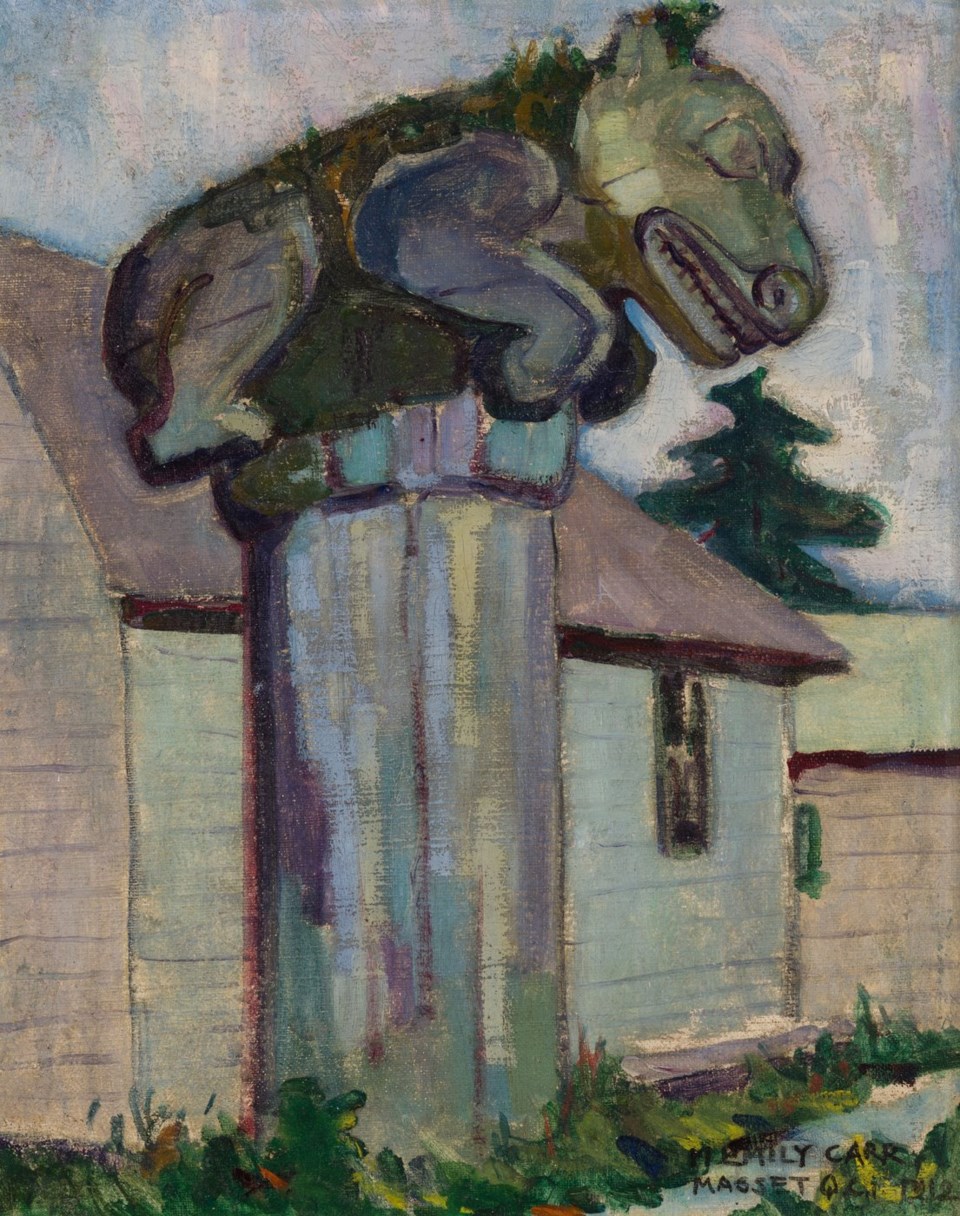When New York-based art dealer Allen Treibitz went to a barn sale in the Hamptons a few months ago, a painting hanging in the old structure immediately caught his eye.
The artwork depicting a carved grizzly bear atop a memorial totem pole bore the signature of iconic Canadian painter Emily Carr, but Treibitz was unfamiliar with her work and legacy. Still, he said he knew there was something special about it.
“It stood out from everything else in that barn,” the 61-year-old, who has been dealing art for more than 40 years, said in a video call.
Treibitz purchased the painting for US$50 and after doing some preliminary research he realized its value was likely much greater.
It wasn’t until he reached out to Canada's Heffel Fine Art Auction House that he understood the scope of his discovery.
“We were provided photos and there was no doubt in my mind that this was an exciting Cinderella discovery,” auction house president David Heffel said in an interview.
The painting will be auctioned on Nov. 20 in Toronto, with its value estimated at $100,000 to $200,000.
The piece titled “Masset, Q.C.I.,” was painted in 1912 as part of Carr’s efforts to create an extensive record of the artistic heritage of First Nation communities in British Columbia. It depicts an Indigenous memorial post that stood in Masset, a village on the province's Haida Gwaii archipelago.
The piece is believed to have been a gift to Carr’s friend Nell Cozier and her husband in the 1930s and has been hanging in a barn in the Hamptons since. The couple had moved to the area to work as caretakers for a large estate after originally living in Victoria.
“I see a lot of very interesting things (but) this one is ... the most significant thing I've ever found,” Treibitz said. “The fact that it was found and that it is back to its home place is very important."
Carr incorporated techniques and styles she learned while studying art in Paris from 1910 to 1911 into the painting, which included working with vibrant watercolours, former University of Guelph art history professor Gerta Moray said.
Moray, who is the author of a book on First Nations imagery in Carr's work, said the style of the painting was considered a setback for the artist at the time. Carr was born in Victoria in 1871 and was closely associated with the renowned Group of Seven, which includes Franklin Carmichael, Lawren Harris and A.Y. Jackson.
"Unfortunately, because of her modern Parisian post-Impressionist style, it was not well received locally," Moray said. "She could not then find a destination for it, either with the provincial museum or getting any number of public purchases."
Heffel said the painting was found in its original frame and stretcher, and nothing had been done to it since it was hung in the barn.
“It needed a good cleaning and freshening up,” he said.
Carr painted the same memorial post again in 1937, but from a different angle.
Before heading to auction, her 1912 painting will be previewed at Heffel galleries in multiple cities, starting in Calgary on Friday and through the weekend.
It will then be shown in Vancouver from Oct. 16 to 21, in Montreal from Oct. 31 to Nov. 5, and in Toronto from Nov. 15 to 19.
Treibitz said he would like to see the painting go to a collector of Carr’s work or a museum.
This report by The Canadian Press was first published Oct. 2, 2024
Alex Goudge, The Canadian Press




